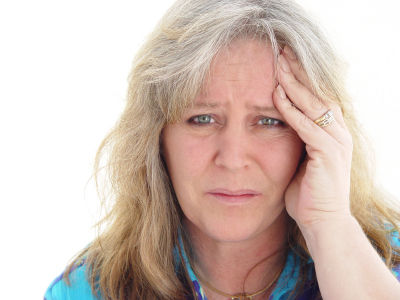How to Cope with Menopause

Menopause is a phase of life in women which marks the end of their reproductive period. The ovaries cease to produce sufficient number of eggs and greatly reduce the production of estrogen. As a result, a woman loses the ability to reproduce.
Menopause is a unique personal experience for every woman. This is a natural event, which commemorates the end of their childbearing years. Most women experience menopause as they get close to 50 years of age. Some women, who are afraid of the change, treat it as the end of their usual life while others welcome menopause as the beginning of life that they have dreamed of.
Women are usually afraid because their body experiences hormonal changes after menopause which may be accompanied by various other symptoms like hot flashes, sleep disturbances, urinary tract infections, vaginal dryness and depression. Follow some easy methods to help you cope with menopause.
Instructions
-
1
First, you need to be examined by a gynecologist, who will conduct cytological examination of the cervix, endometrial thickness measurement, mammograms, blood tests for glucose and thyroid-stimulating hormone, to determine the function of the thyroid gland.
-
2
After examination, the doctor will develop a personalised program of hormone replacement therapy. This adjustment aims to prevent serious diseases (atherosclerosis, osteoporosis, senile dementia, etc.).
-
3
Patient must give up foods containing high amounts of cholesterol and restrain herself from spicy dishes, soups, chemical additives and flavour enhancers. Preference should be given to raw vegetables and fruits, boiled beef and poultry meat, yoghurt drinks, cottage cheese and porridge.
-
4
Since the main reason for menopause is the loss of ovarian estrogen production capacity, the most effective method of treatment of early menopause is hormone replacement therapy (HRT). It allows you to make up the missing hormones in a woman's body, thus prolonging the childbearing period. Hormone replacement therapy is an effective treatment for menopausal symptoms. But some women may experience side effects during the treatment. So, it is not recommended for everyone. Possible side effects of hormone replacement therapy include increased risk of breast cancer or strokes.
-
5
A new survey published in the "British Medical Journal" has shown the benefits of herbal medicine and alternative therapies for menopause. These are safe and effective methods of treatment for women who experience side effects from the standard treatment of menopause.
-
6
In most cases, the symptoms of menopause can cause anxiety in some women. So, it is highly recommended to stay calm and start medication during this period.


